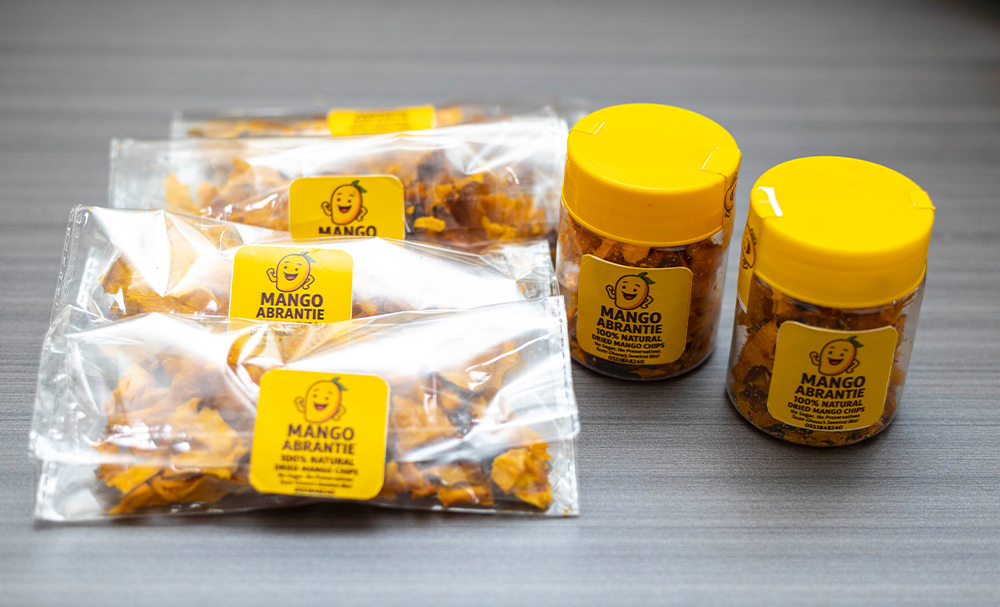At just Level 200, Godfred Anewiase, a student of the Department of Geography and Rural Development, Kwame Nkrumah University of Science and Technology (KNUST), Kumasi, is already making a mark as a young food innovator. Driven by a passion to tackle post-harvest losses in Ghana’s mango sector, he has developed a new product, Mango Abrantie Chips, a healthy, affordable, and convenient snack transforming surplus mangoes into value.
Godfred’s journey into food innovation was inspired by a pressing challenge he had seen all his life, the wastage of mangoes during the fruit’s peak seasons.
Coming from a family of mango traders, he witnessed firsthand how farmers struggled to sell their produce whenever demand dropped or major buyers could not absorb the surplus.
“I grew up watching my mother, a mango wholesaler, and saw how farmers suffered when their fruits remained unsold,” he explained. “Even though mango is one of the most highly demanded fruits, the paradox is that so much goes to waste. I wanted to find a way to turn this waste into something valuable.”
His solution was to transform fresh mangoes into crispy, naturally preserved chips that retain the fruit’s authentic taste and nutritional value.
Unlike many processed snacks on the market, Mango Abrantie chips are 100% natural, with no added sugar or preservatives.
![]]](/sites/default/files/inline-images/Mango%20Abrantie%20Owner%20%281%29.jpg)
They are hygienically prepared, sustainably packaged, and designed to meet the modern consumer’s demand for health and convenience.
Godfred began the project on his own, drawing on the encouragement of family and friends. His mother, in particular, has played a crucial role by supplying mangoes to him on campus without demanding payment, enabling him to reinvest in the venture.
As with any entrepreneurial journey, the path has not been without challenges. Packaging was one of the first hurdles. “I started with bottles, but consumer feedback pushed me to adopt transparent packs. I am now working on eco-friendly paper sachets to ensure sustainability,” he said.
Access to equipment and striking a balance between affordability and quality have also tested his resilience. Despite these challenges, positive feedback from students, staff, and the general public has kept him motivated.
Although he has not yet received formal institutional support, Godfred notes that KNUST’s entrepreneurial ecosystem has shaped his thinking. Discussions with peers and exposure to innovation-driven initiatives on campus have broadened his vision for scale and impact.
Godfred’s dream for Mango Abrantie extends far beyond chips. He envisions creating a zero-waste mango enterprise, producing a range of mango-based products, including cosmetics, while providing reliable market access for farmers.
“In five years, I see Mango Abrantie in major supermarkets across Ghana and being exported internationally as a proudly Ghanaian brand,” he affirmed.
His innovation, he believes, could contribute significantly to reducing post-harvest losses, providing farmers with additional income, and ensuring the availability of mangoes beyond the fruiting season.
Reflecting on his journey, Godfred noted the importance of adaptability and perseverance. “I’ve learned to listen to feedback, to start small, and to stay committed to the bigger vision,” he shared.
To fellow students aspiring to innovate, his advice is simple yet powerful:
“Start with what you have. Don’t wait for perfect conditions. Test your idea, learn from your mistakes, and keep improving. Above all, trust in God, believe in your vision, and remain open to growth.”
| Story: Eunice Odumaa Asare |

















